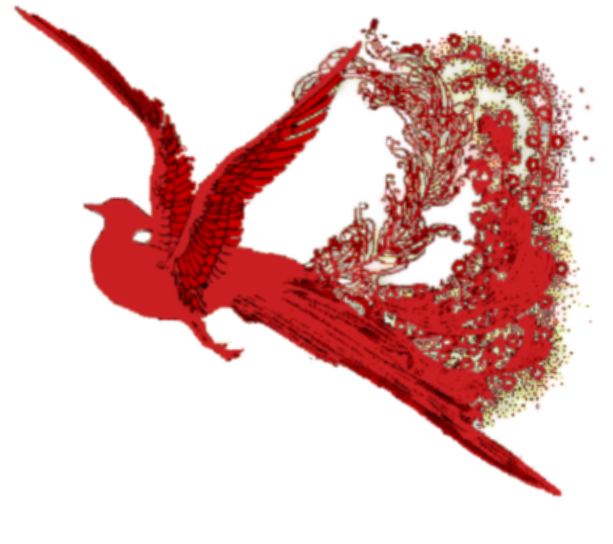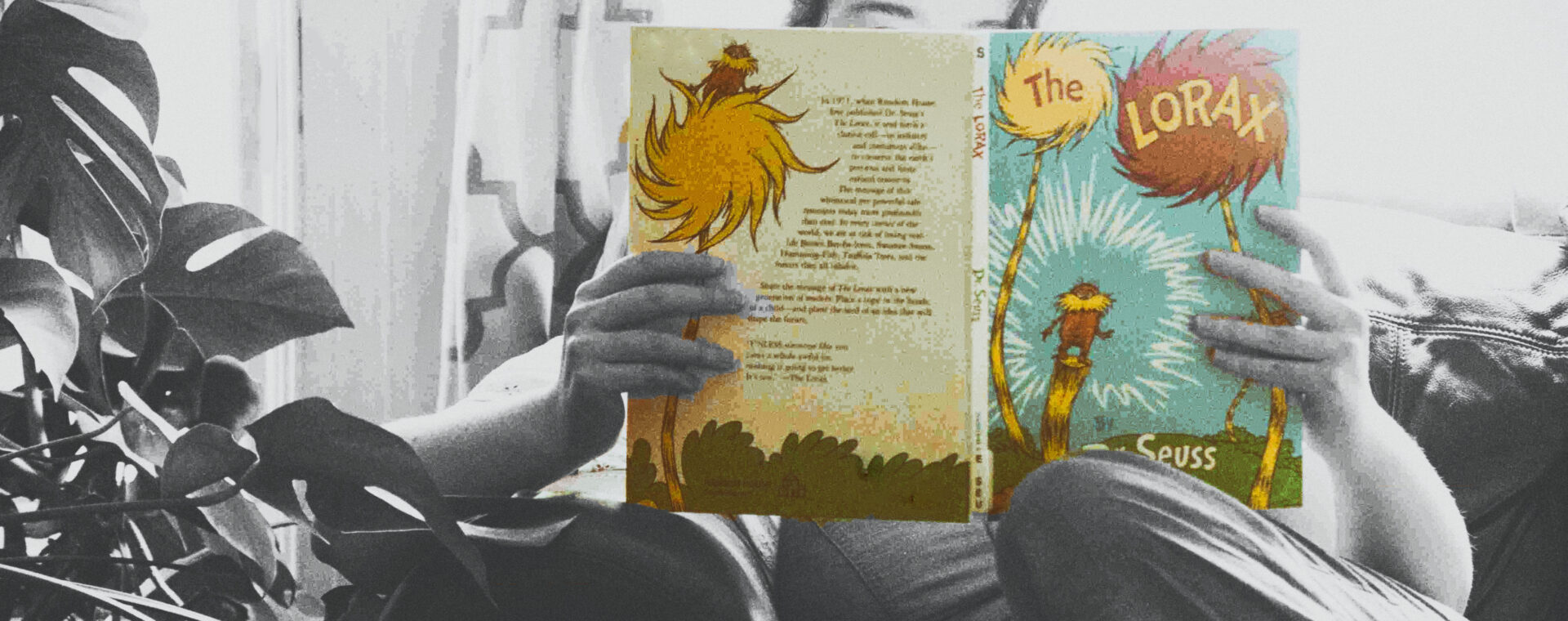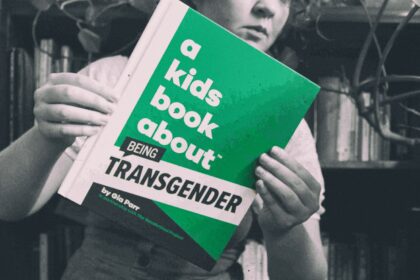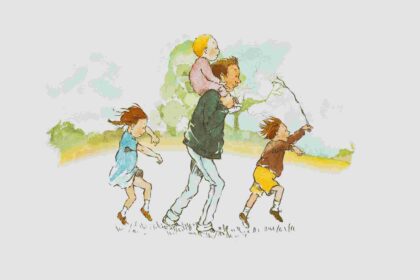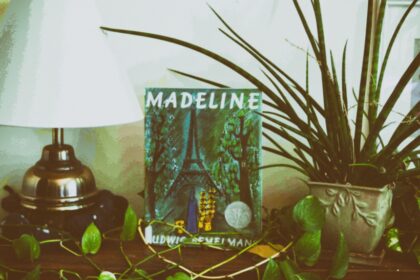The Lorax was Dr. Seuss’s personal favorite of his books. Probably because it was the result of his deeply held beliefs. “The Lorax,” he once explained, “came out of my being angry. The ecology books I’d read were dull. . . . In The Lorax I was out to attack what I think are evil things and let the chips fall where they might”
In the book a small boy pays a price to hear the tale of the Once-ler, a greedy entrepreneur who comes across a Truffula paradise but ruins it with his capitalist endeavors. He cuts down Truffula trees to make thneeds that are sold for $3.98 which sound like something sold on Wish.com.
However the Lorax comes out of that tree and, like an Old Testament Prophet warns the Once-ler that he’s going down the wrong path but the Once-ler doesn’t listen and ravages the land forcing the bears, birds and fish to leave. He finally kills the very last Truffula tree putting Once-ler out of business and the Lorax takes himself off to the heavens leaving behind the words “Unless.”
As the Once-ler tells the story he realizes why the Lorax left the message because “Unless someone like you cares a whole awful lot, nothing is going to get better. It’s not.” and gives the boy the last Truffula seed and urges him to grow a forest.
The moral of The Lorax is a blatant environmental message that ends with a call to action for the children reading it.
“For Seuss, wild nature is a paradise, industry is a malignant cancer and heroes take a stand,” Emma Marris wrote for Nature, reflecting that the book was too gloomy for children.
Probably the best part about the book is that it is dark, and far too often we wrap children in a false façade of an untroubled world instead of speaking about problems in a way that they can understand.
And the book addresses the serious problem of America’s rampant consumerism.
In 1930, the average American woman owned nine full outfits, currently the average woman owns 30. And in the 1930’s Americans were spending 11% of their disposable income on clothes, now it’s less than 3%.
A UK study found that on average women wore a piece of clothing only 7 times before getting rid of it.
The clothing is often made in China sweatshops where over a million people die every year because of smog, is enjoyed for a brief period in America, then to end up in a landfill or be shipped to the third world, which has destroyed local textile industries.
The Lorax addresses a real problem and is an amazingly well-written book and yet I can’t quite give it my wholehearted praise because while capitalism is filled with problems, it is not inherently evil, and nature without industry is not paradise or untainted good. Humans cannot regain paradise through our own efforts.
Environmentalists often make nature into a god that we must serve to bring the world back to its untouched primitive state, but as Christians we have a calling to bring about Christ’s kingdom. Part of that call is to be wise stewards of the earth and reject mindless consumerism and consider carefully if the products we buy are made ethically; but we do not serve Nature, we serve Christ.
The Lorax is a book that I have very mixed feelings about. There are parts of it that I think are really really good, there are other parts of the book that I think totally miss the mark.
What do you think of The Lorax? Let me know what you think in the comments below.
